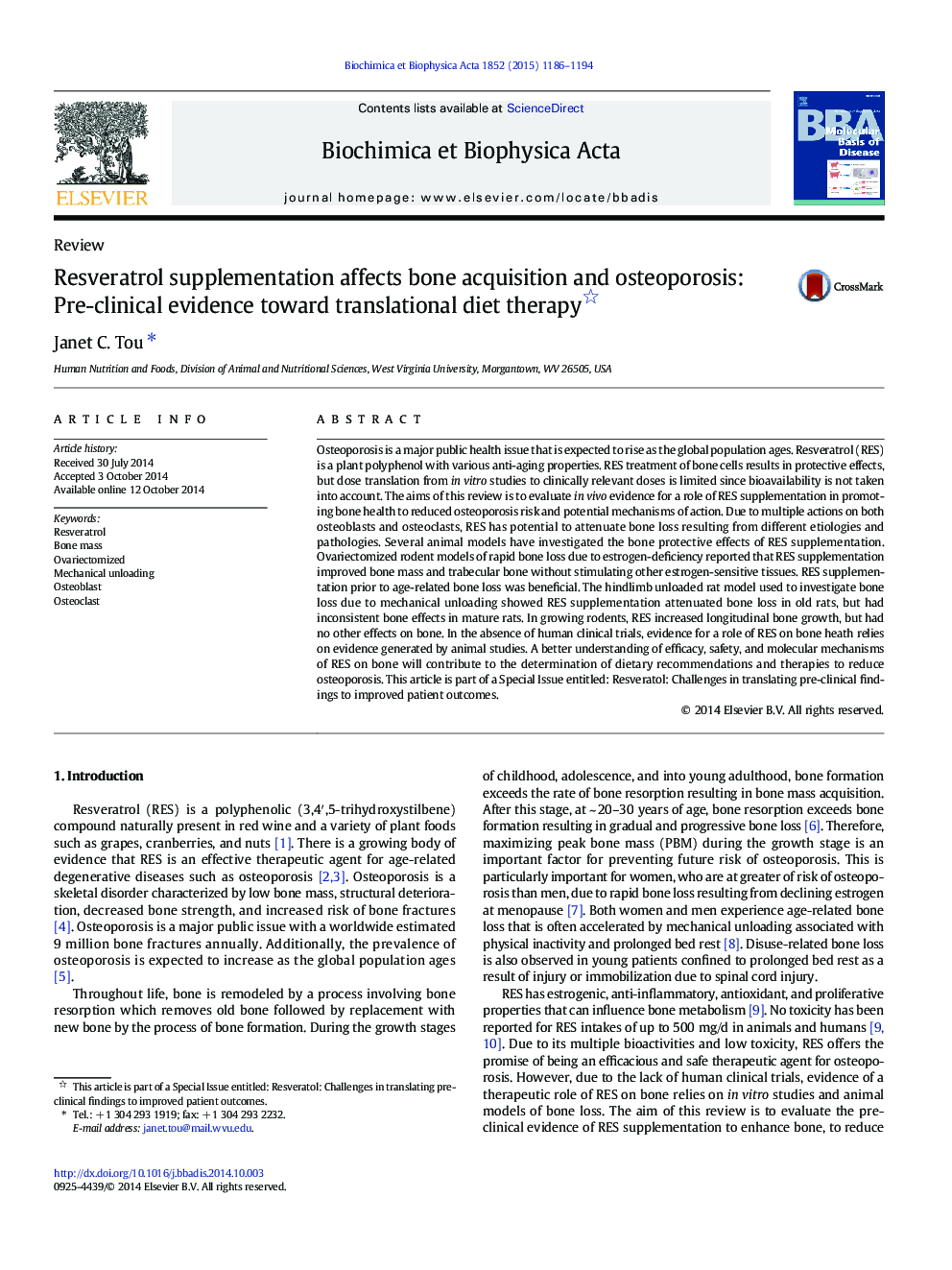| Article ID | Journal | Published Year | Pages | File Type |
|---|---|---|---|---|
| 1904573 | Biochimica et Biophysica Acta (BBA) - Molecular Basis of Disease | 2015 | 9 Pages |
•RES supplementation shown to be bone protective in various animal models•RES anti-inflammatory actions prevent estrogen deficiency and age-related bone loss.•RES improved bone by promoting bone formation and by inhibiting bone resorption.•RES affects osteoblasts/osteoclasts through transcription factors/signaling pathways.
Osteoporosis is a major public health issue that is expected to rise as the global population ages. Resveratrol (RES) is a plant polyphenol with various anti-aging properties. RES treatment of bone cells results in protective effects, but dose translation from in vitro studies to clinically relevant doses is limited since bioavailability is not taken into account. The aims of this review is to evaluate in vivo evidence for a role of RES supplementation in promoting bone health to reduced osteoporosis risk and potential mechanisms of action. Due to multiple actions on both osteoblasts and osteoclasts, RES has potential to attenuate bone loss resulting from different etiologies and pathologies. Several animal models have investigated the bone protective effects of RES supplementation. Ovariectomized rodent models of rapid bone loss due to estrogen-deficiency reported that RES supplementation improved bone mass and trabecular bone without stimulating other estrogen-sensitive tissues. RES supplementation prior to age-related bone loss was beneficial. The hindlimb unloaded rat model used to investigate bone loss due to mechanical unloading showed RES supplementation attenuated bone loss in old rats, but had inconsistent bone effects in mature rats. In growing rodents, RES increased longitudinal bone growth, but had no other effects on bone. In the absence of human clinical trials, evidence for a role of RES on bone heath relies on evidence generated by animal studies. A better understanding of efficacy, safety, and molecular mechanisms of RES on bone will contribute to the determination of dietary recommendations and therapies to reduce osteoporosis. This article is part of a Special Issue entitled: Resveratol: Challenges in translating pre-clinical findings to improved patient outcomes.
Graphical abstractFigure optionsDownload full-size imageDownload high-quality image (193 K)Download as PowerPoint slide
